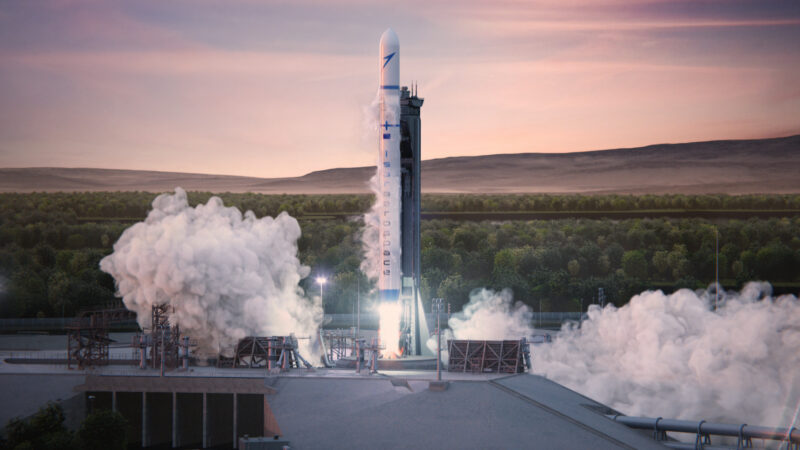Latest News

Rendering of the Isar Aerospace Spectrum launch vehicle. Photo: Isar Aerospace
Isar Aerospace secured its first U.S.-based customer, signing a multi-launch agreement with rideshare provider Spaceflight, as it works toward its first test flight of its Spectrum rocket.
Isar Co-founder and CEO Daniel Metzler recently spoke with Via Satellite and said vehicle testing is going well and in the next few months the launcher will be fully integrating the vehicle, working toward first flight in the second half of this year.
The deal with Spaceflight announced Wednesday is for a dedicated launch in 2026 to a Sun-Synchronous Orbit from Andøya, Norway, with the option to add an additional dedicated launch in 2025.
Launch availability is a more pressing concern for Europe right now after the Vega C failure, as Europe awaits the debut of Ariane 6. Metzler said sovereignty took on a new meaning in Europe in 2022, and the smallsat launch market has moved from a demand-driven industry toward a supply-driven industry.
“Speaking as a European, it’s terribly sad to see that Europe literally does not have any launch capability right now,” Metzler said. “It is a huge impact, where not only governments and agencies, space agencies and defense agencies are dependent on non-European technology. [It] puts the fate of the European future in space into non-European hands.”

Isar Aerospace CEO Daniel Metzler
Isar, based in Germany, is part of the field of privately-owned European smallsat launchers racing to get to orbit to fill the vacuum in launch capacity. Isar is privately financed by SpaceX alum, now Mynaric CEO Bulent Altan, as well as Airbus Ventures, Porsche SE, and others.
The company takes the approach of being vertically integrated. Isar is nearly fully vertically integrated including design, manufacturing, and testing. Metzler said the vehicle is based on technology developed only in Europe, and nearly all of it is proprietary technology.
“We try to do almost everything ourselves, where it makes sense. It’s definitely not the easy path … but throughout 2022, we’ve seen especially with the impact on supply chains that it has been the right decision,” he said.
Isar has a number of launch agreements with customers including Astrocast, EnduroSat, and Airbus Defence and Space. Notably, Isar secured approval last year from French space agency CNES to operate its rockets from the Guiana Space Centre (CSG) in French Guiana. This could make Isar the first privately-funded launch company to fly satellites from CSG.
Metzler stresses that Isar is working to build a sustainable business model, versus a rocket that can reach orbit once. The company is focused on automating its manufacturing capability, applying knowledge of European automakers. Metzler said the current factory with 40 people on the shop floor can build about one rocket engine per week.
Isar has worked to build a rocket designed for mass-manufacturing, he says. Customers are planning for launches as far out as 2030 — planning for double-digit numbers of dedicated launches to fill and refill their constellations.
“You have to already have the right designs in order to get to a point where you can do a significant double-digit number of launches, even for a single customer,” Metzler says. “If a customer wants to buy 20 flights a year, you don’t want to sell your entire launch manifest to one customer. In that case, you would have to build 50 to 60-plus rockets a year. We just take a significantly different approach to anyone else by automating the manufacturing around it.”
He sees Isar as part of a push to make Europe’s space industry a more commercially driven and cost effective industry.“The knowledge is there in Europe, but there’s no entrepreneurially driven spirit of changing how we do business in space,” Metzler says. “Europe, as of today, is very much in a place where the U.S. was about 15 years ago, still stuck with established players and doing business because we did it the last 40 years in the same way. [It is only] on the brink of thinking about new ways to open up the industry.”
Get the latest Via Satellite news!
Subscribe Now